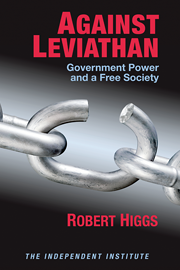Ten years after the U.S. government launched its second war against Iraq, we may draw many conclusions about its having done so and about the actions and events that followed. The chief conclusion I draw is nothing new; indeed, it is the oldest axiom of statecraft: crime pays.
In 1945, the jurists that the U.S. government and its wartime allies sent to compose the Nuremburg Tribunal spelled out the nature of crimes against peace in considerable detail, including “(i) Planning, preparation, initiation or waging of a war of aggression or a war in violation of international treaties, agreements or assurances; (ii) Participation in a common plan or conspiracy for the accomplishment of any of the acts mentioned under (i).” The chief American prosecutor at Nuremburg, Justice Robert H. Jackson, said: “To initiate a war of aggression... is not only an international crime; it is the supreme international crime differing only from other war crimes in that it contains within itself the accumulated evil of the whole.”
Although certain lawyers might concoct a variety of avowedly “legal” justifications for the war launched in 2003, any fair-minded person must see that if this war does not qualify as a war of aggression, it is difficult to identify one that does. The United Nations Charter obliges all member states to “refrain in their international relations from the threat or use of force against the territorial integrity or political independence of any state.” Every disinterested observer must see that this war was not waged in self-defense: Iraq did not and had not threatened the U.S.; it had neither the means nor the intention of attacking this country or otherwise harming U.S. national security. The war was plainly one of choice and aggression, thinly disguised as preemption.
Among the war’s countless consequences are more than a hundred thousand deaths, innumerable physical and psychic injuries, vast destruction of property, and displacement of millions of people from their homes. By comparison, any conceivable good that came of the war was relatively insignificant. The war has (or eventually will have) squandered more than a trillion dollars of U.S. wealth.
If waging aggressive war was the crime, the criminals who perpetrated it are obvious because they made no attempt to conceal their culpability; indeed, they took public credit for the crime. Heading the list are George W. Bush, Dick Cheney, Donald Rumsfeld, Paul Wolfowitz, Colin Powell, and Condoleezza Rice, followed by a large number of subordinates and co-conspirators, including Douglas Feith, Elliott Abrams, Richard Perle, and virtually every other prominent neoconservative in the country.
Notwithstanding their crimes, they have prospered. Bush and Cheney were reelected. All of the others have gone on to live as seemingly respectable members of society. They occupy prestigious positions and move about freely; they receive public honors; many people treat them as praiseworthy figures. None of them were ever indicted by a U.S. court. In short, they have got off scot-free. Crime pays.



















